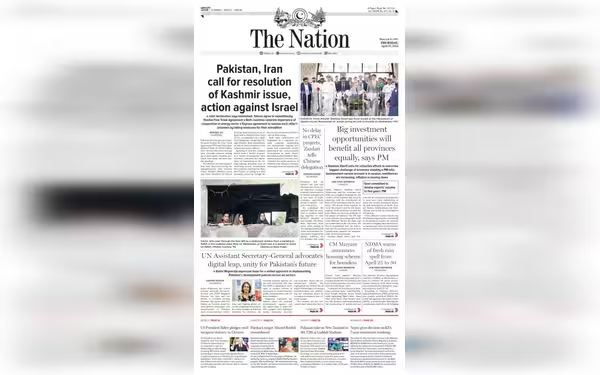Thursday, July 4, 2024 06:56 PM
Dr. Aftab Madni Urges Government Action on Tobacco Consumption
- Tobacco production concentrated in developing nations like Pakistan
- 24 million active smokers in Pakistan, leading to public health toll
- 337,500 Pakistanis lost lives due to smoking-related illnesses
 Image Credits: The Nation
Image Credits: The NationA study reveals the impact of tobacco production in developing countries like Pakistan, urging government action to curb smoking and protect public health.
In a recent international study on cigarette production, it has been revealed that a significant portion of tobacco products are manufactured in poor and underdeveloped countries, including Pakistan. This has raised concerns among health activists regarding the rising consumption of tobacco products in Pakistan. They are urging the government to enforce relevant laws not only to enhance tax collection but also to reduce the healthcare costs associated with smoking.
The study conducted by London's Imperial College, titled 'Tobacco's global environmental footprint,' highlights the alarming concentration of tobacco production in developing nations. Dr. Aftab Madni, Dean of the Indus University, pointed out that nearly 90% of all tobacco production occurs in the developing world, with Pakistan falling into the category of low-income food deficit countries (LIFDCs).
Dr. Madni emphasized that the easy accessibility of cigarettes, particularly among vulnerable groups, is exacerbating poverty levels. He noted that the money spent on purchasing cigarettes could instead be utilized for essential items like food. According to a report by the government-run research institute PIDE, there are approximately 24 million active smokers in Pakistan, leading to a significant toll on public health. Shockingly, reports suggest that 337,500 Pakistanis have lost their lives due to smoking-related illnesses, underscoring the urgent need for the government to raise taxes on tobacco products.
In conclusion, the findings of the study underscore the pressing need for stringent measures to curb tobacco consumption in Pakistan. By implementing effective policies and increasing taxes on tobacco products, the government can not only boost revenue but also safeguard public health and reduce the devastating impact of smoking on society.













